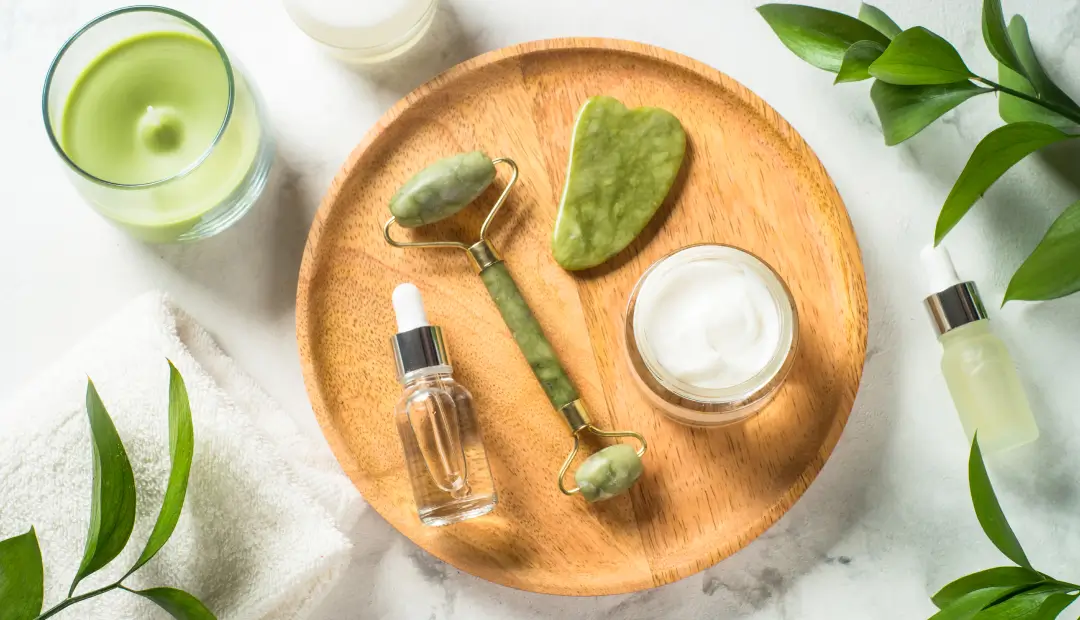Vegan cosmetics are transforming the beauty industry, turning what was once a niche into a major market force. According to Cosmetics Business, in 2022, the global vegan cosmetics market was valued at around $17 billion and is projected to reach $24 billion by 2028.
Consumers, especially Millennials and Gen Z are increasingly prioritizing ethical and sustainable products, and vegan certification has become a key selling point. A 2023 Mintel report found 57% of global beauty consumers are more likely to buy products labeled as vegan.
This explainer dives into:
- What vegan certification means in cosmetics
- Vegan certification process
- The vegan certification benefits for cosmetic brands
- Can vegan certification be integrated with other audits (i.e: CGMP, Halal, etc)
What Does “Gluten Friendly” Really Mean?
A vegan certification is a third-party verification that a cosmetic meets this standard. In practice, this means the product contains no animal ingredients and typically also affirms that no animal testing was involved in its development.
Difference between vegan and cruelty-free
While “cruelty-free” certification focuses solely on the absence of animal testing, vegan certification goes further by ensuring no animal-derived ingredients are used. Most reputable vegan certifications include a cruelty-free component as well, since a product cannot truly be considered vegan if its ingredients or final formula were tested on animals.
When a cosmetic product is vegan-certified, it can display an official logo or trademark from the certifying organization. This logo signals to consumers that an independent body has checked the product and its ingredients to ensure they meet strict vegan criteria. In essence, vegan certification in cosmetics provides a clear, trusted definition of “vegan” for products, giving consumers confidence that vegan really means 100% free of animal exploitation in both content and process.
Vegan Certification Process
Cosmetic brands and manufacturers can pursue vegan certification through recognized organizations. The process generally involves an application, ingredient documentation, compliance with standards (no animal ingredients or testing), followed by use of the certification logo on approved products.
Below is a breakdown of major vegan certifying bodies:
| Step | Process description | What is required |
| 1. Application Submission | Brand submits an application, including full ingredient list and supply chain details for each product. | Certifiers require disclosure of all raw materials, sub-ingredients, and supplier information. |
| 2. Documentation Review | Certification team audits documents to ensure no animal-derived substances or animal testing. May contact suppliers directly for verification. | Certifiers perform in-depth verification, including cross-referencing supplier claims and traceability documentation. |
| 3. Evaluation & Compliance Checks | Certifier ensures the product complies with vegan standards (no animal ingredients, no animal testing). | Certifiers adhere to global compliance, including ISO 16128. |
| 4. Certification & Logo Use | Upon approval, a certification is granted allowing the use of the vegan logo for 1 year. | Certifier grants the Vegan Certification Logo, valid for 12 months. Any changes in formulation must be reported immediately to maintain compliance. |
| 5. Ongoing Transparency & Renewal | Annual renewal required. | Manufacturers/brands must maintain transparency and notify the certifier of changes in formulation or suppliers. |
Difference between vegan and cruelty-free
Getting certified vegan requires documentation validation, so manufacturers/brands must be prepared to provide evidence for every ingredient and process. This typically means securing written statements from ingredient manufacturers that confirm the ingredient is not animal-derived and not tested on animalsvegan.org.
Have full formulation breakdowns ready, including processing aids or incidental ingredients. If your manufacturing facility handles non-vegan products too, you may need to document cleaning procedures for shared equipment to prevent cross-contamination.
Benefits of Vegan Certification for Cosmetic Brands
Vegan certification offers significant benefits to cosmetic manufacturers brands, from building consumer trust to expanding market opportunities. Here are four key vegan certification benefits:
1.Better Consumer Trust
A third-party vegan logo on a product immediately boosts its credibility with savvy consumers. Shoppers know that the “vegan” claim has been vetted by an independent body and isn’t just a marketing gimmick. This markedly increases consumer confidence. Surveys show that over 80% of consumers in the UK and US look for vegan certification on cosmetics and toiletries when buying for the first time.
2.Marketability and Expanded Customer Base
Being vegan-certified makes a brand more attractive to the fast-growing segment of ethical consumers. It opens doors to new customer groups, not only strict vegans, but also flexitarians and ingredient-conscious shoppers who prefer products with ethical labels. Retailers are responding to demand by giving shelf space to vegan-certified brands and even favoring them as forward-thinking partners.
3.Regulatory Alignment & Market Access
Pursuing vegan certification can help ensure a brand is in line with current and emerging regulations, especially in the EU. While the term “vegan” itself isn’t legally defined in cosmetics regulation, using a standardized certification helps avoid greenwashing and mislabeling risks by providing a clear definition.
4.Ethical Brand Image
Animal agriculture and byproduct sourcing (like livestock-derived ingredients or palm oil from unethical sources for animal-based additives) can contribute to deforestation, higher greenhouse gas emissions, and biodiversity loss. By contrast, plant-based or synthetic alternatives used in vegan products can be more sustainable and cruelty-free. The certification itself signals that a company cares about animal welfare and ethical sourcing, which bolsters its overall brand image in the eyes of conscious consumers.
Can Vegan Certification Be Integrated with Other Audits (i.e., cGMP, Halal, etc.)?
Yes, vegan certification can be efficiently integrated with other audits such as cGMP, Halal, and Non-GMO, particularly when conducted by a multi-scope certifier like Carat Global Assurance (CGA).
Integration brings significant operational and financial advantages:
- Multiple certifications on a single product (e.g., Halal + Vegan + GMP) reinforce ethical, safety, and quality commitments especially in regulated or value-driven markets like the EU, GCC, and North America.
- One set of documentations (e.g., ingredient lists, production SOPs, supplier declarations) can be reviewed once for multiple certifications and save up to 30% of costs and time for manufacturers.
- It creates opportunities for holistic compliance. For example, Halal and Vegan both prohibit animal-derived ingredients, so overlap in ingredient vetting and cross-contamination controls allows streamlined reviews.
Get in Touch With CGA
Vegan certification is gradually becoming a benchmark of quality, ethics, and sustainability that consumers and retailers increasingly expect. For cosmetic brands globally, getting products certified vegan will:
- strengthen consumer trust
- enhance marketability (and even pricing power)
- ensure alignment with regulatory and retailer requirements
To learn more about the CGA Vegan Certification process, requirements, and certification mark, contact our Vegan Certification Specialist Team at +1 (331) 253-9610 or complete the application form below.




